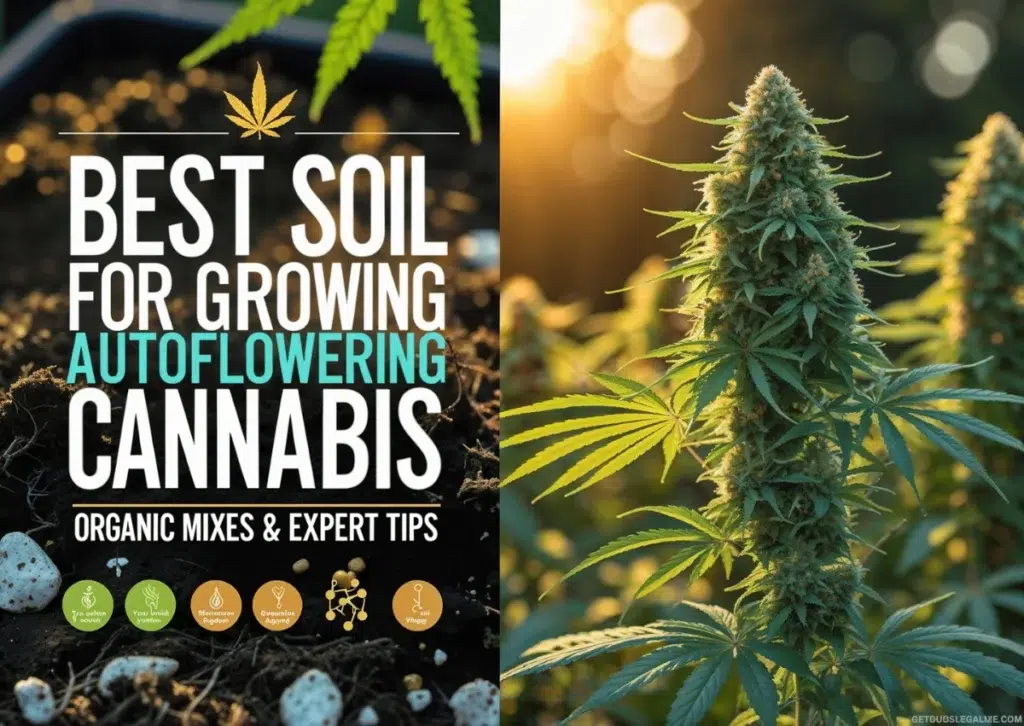How to Make the Best Compost Tea for Flowering Cannabis
If you are looking for a natural and organic way to boost the health and productivity of your cannabis plants, you might want to try making your own compost tea for flowering cannabis.
Compost tea is a liquid fertilizer that is brewed from compost, water, and some additional ingredients that provide beneficial microbes and nutrients to your soil and plants.
In this blog post, we will explain what compost tea is, why it is beneficial, and how you can make it at home with some simple steps.
What Is a Compost Tea?
Tea of Compost is a natural liquid fertilizer that enriches plants and soil with nutrients and beneficial microbes. It is produced by soaking compost in water and adding air to stimulate the growth of microorganisms. It can help plants resist diseases, improve soil water retention, and increase biodiversity.
Tea of Compost has soluble nutrients that plants can absorb easily, as well as bacteria and fungi that compete with harmful pathogens on leaves and roots. It can be easily homemade with a bucket, an air pump, a bag, and some compost, or, it can be bought in different forms, such as tea bags, powder, or liquid concentrate.
What Are Anaerobic Microbes and Why Aren't They Good for Your Plants?
Anaerobic microbes are microorganisms that do not need oxygen to survive and thrive. They are usually found in low-oxygen environments, such as stagnant water, decomposing organic matter, or poorly aerated soils. Anaerobic microbes can produce toxic substances, such as alcohol, ammonia, hydrogen sulfide, methane, and acetic acid, that can harm your plants and soil.
Anaerobic microbes can also compete with the beneficial aerobic microbes in your compost tea, reducing its quality and effectiveness. Anaerobic microbes can cause problems such as:
- They can lower the pH of your tea, making it more acidic and less suitable for your plants.
- They can reduce the availability of nutrients and minerals in your tea, making it less nutritious for your plants.
- They can produce foul odors and slime in your tea, making it unpleasant to use and store.
- They can introduce harmful pathogens and pests to your plants, such as fungi, bacteria, nematodes, insects, and weeds.
What are The Benefits of Using Compost Tea for Flowering Stage?
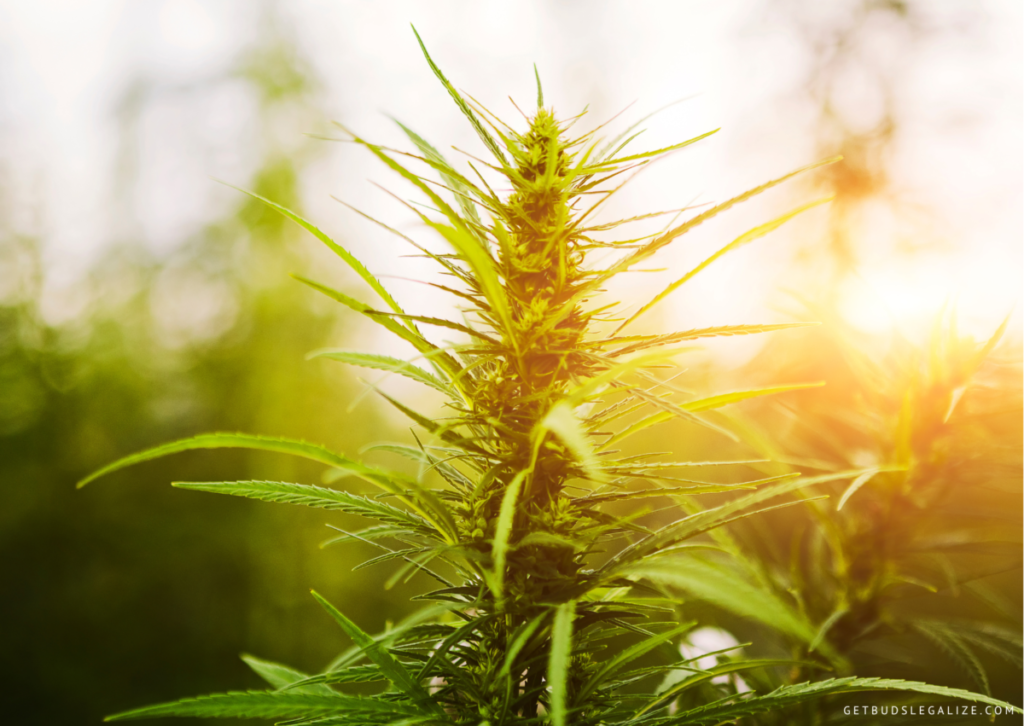
The tea of compost has many benefits for your cannabis garden and your soil. Some of the main are:
1. Increased Blossoms and Yields:
It provides your marijuana plants with essential nutrients and hormones that stimulate flowering and fruiting. It also helps to improve the quality and potency of your buds by enhancing the production of terpenes and cannabinoids.
2. Increased Pest and Disease Resistance:
It boosts the immune system of your plants by providing them with beneficial microbes that compete with harmful pathogens and pests. It also helps to create a protective layer on the leaves that prevents fungal infections and insect damage.
3. Increased Breakdown of Toxins in Your Soil:
It helps to detoxify your soil by breaking down harmful chemicals and pollutants that may have accumulated over time. It also helps to balance the pH and improve the structure of your soil by increasing the organic matter content.
4. Increased Water Holding Capacity:
It helps to retain moisture in your soil by improving its porosity and aggregation. This reduces water runoff and evaporation and allows your plants to access water more efficiently.
5. It’s 100% Safe and All-Natural:
It is made from organic materials that are free from synthetic chemicals or additives. It is safe for you, your plants, and the environment. You can use it as often as you want without worrying about burning or harming your plants.
6. Cheap and Effective:
Making your own organic compost tea is much cheaper than buying bottled fertilizers or pesticides. You can use your own compost or get it from a local source. You only need a few simple ingredients and tools to brew your own tea.
7. Improving the Flavor and Quality of the Buds:
It can enhance the terpene profile and cannabinoid content of your cannabis flowers, making them more potent and aromatic.
8. Protecting the Plants from Frost Damage:
It can help your outdoor plants survive cold temperatures by increasing their resistance to stress and disease.
How to Make the Your Compost Tea Step-by-Step
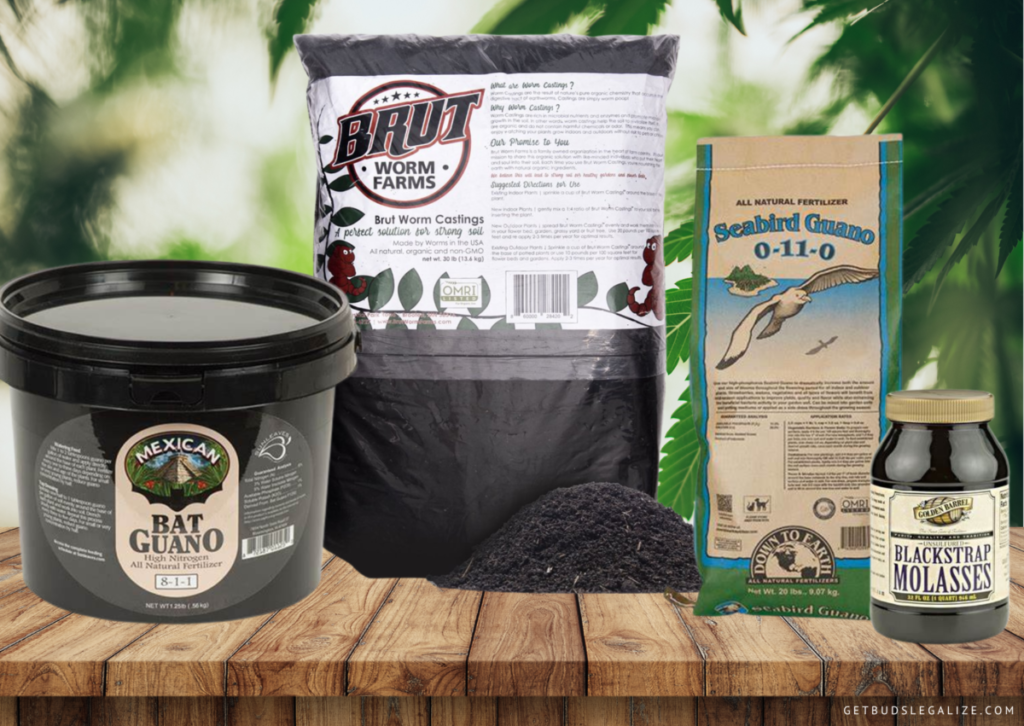
To make a compost tea for flowering cannabis, you will need the following equipment:
- A 5-gallon bucket with a lid
- A fine mesh bag or cheesecloth
- A water pump or an aquarium air pump
- An air stone
- A hose or tubing
- Dechlorinated water, such as rainwater, distilled water, or tap water has been left out for 24 hours.
- A thermometer
- A pH meter
- A molasses (preferably organic)
- A high-quality compost (preferably organic)
Simple Compost Tea Recipe for Flowering Cannabis:
Here are the ingredients you will need:
- 1 cup of DNC Wormcastings: These are the end product of worm digestion and contain a high concentration of beneficial bacteria, fungi, enzymes, and plant hormones. Wormcastings also improve soil structure and water retention.
- 5 tablespoons of organic unsulfured blackstrap molasses: This is a natural sweetener that provides food for the microbes and helps them grow faster. Molasses also contains minerals such as iron, calcium, magnesium, and potassium that are essential for plant growth.
- 1/2 cup of alfalfa meal: This is a plant-based protein source that stimulates the growth of beneficial fungi and bacteria. Alfalfa meal also contains natural growth hormones such as triacontanol and cytokinins that enhance plant development and yield.
- 2/3 cup of Peruvian seabird guano: This is a rich source of nitrogen, phosphorus, and potassium which are the primary macronutrients for plants. Sea bird guano also contains trace elements such as zinc, copper, manganese, and boron which are important for plant health.
- 2/3 cup of bat guano: This is another excellent source of nitrogen, phosphorus, and potassium that can boost the flowering and fruiting of your plants. Bat guano also has a high microbial activity and can help suppress soil-borne diseases.
Preparation Method:
The steps to brewing compost tea are:
1. Fill the bucket with water and let it sit for 24 hours to dechlorinate it. Chlorine can kill the beneficial microbes in the compost.
2. Put the compost in the mesh bag or cheesecloth and tie it securely. You will need about one cup of compost for every gallon of water.
3. Add the molasses to the water. Molasses is a food source for the microbes and helps them multiply. You will need about one tablespoon of molasses for every gallon of water.
4. Submerge the compost bag in the water and attach the pump and air stones to the bucket. The air stones will create bubbles that oxygenate the water and keep the microbes alive.
5. Cover the bucket with a lid and place it in a warm and dark place. Let the compost tea brew for 24 to 48 hours, depending on how strong you want it to be.
6. After brewing, remove the compost bag and squeeze out any excess liquid. You can reuse the compost for another batch or add it to your garden soil.
7. Dilute the aerated compost tea with water before applying it to your plants. The ideal ratio is one part composted tea to four parts water.
How to Know When the Compost Tea for Cannabis Plants is Ready?
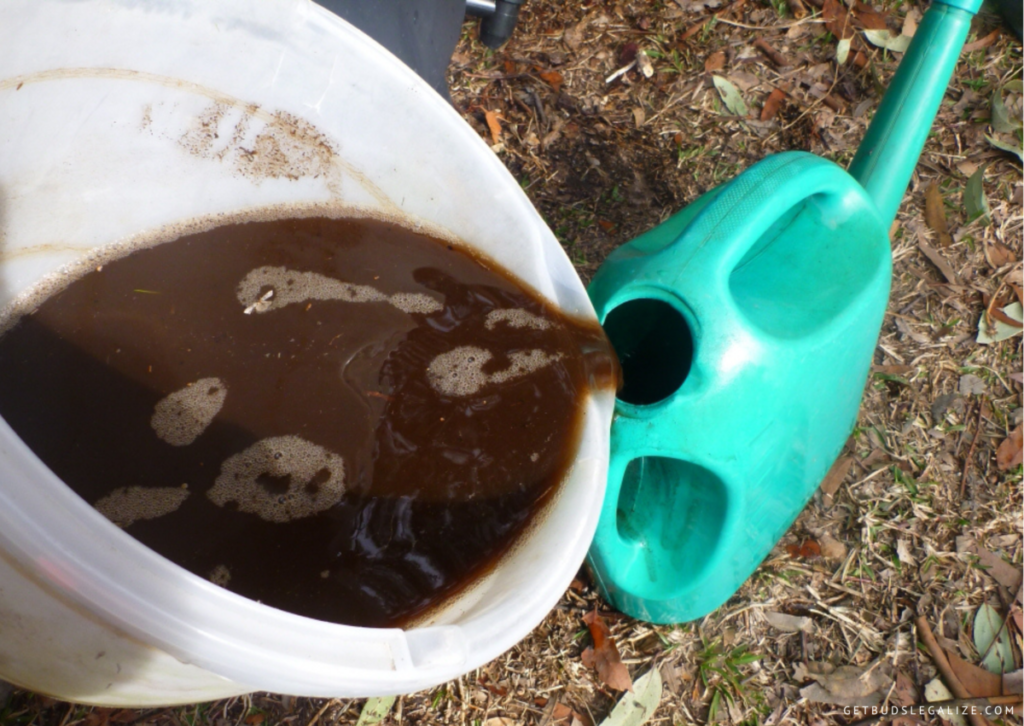
There are several indicators that can help you determine the readiness of your Tea of Compost. One of them is the smell. A good compost tea should have a pleasant, earthy smell, similar to a forest floor. If it smells sour, rotten, or foul, it means that the compost tea has gone bad and should be discarded.
Another indicator is the color. A good compost tea should have a dark brown color, like coffee or tea. If it is too light or too dark, it means that the compost tea is either too diluted or too concentrated.
A third indicator is the foam. A good compost tea should have a layer of foam on the surface, which indicates that the microorganisms are active and healthy. If there is no foam or very little foam, it means that the compost tea is either too old or not aerated enough.
How Often Do You Feed Compost Tea to Your Plants?
How often depends on several factors, such as the quality of your compost, the stage of growth of your plants, and the condition of your soil.
However, a general guideline is to feed compost tea once every two weeks during the vegetative stage, and once a week during the flowering stage. This will provide your plants with a steady supply of nutrients and beneficial microbes that will boost their growth and immunity.
How to Apply the Tea of Compost to Your Plants?
There are two main methods you can use to apply compost tea to your plants: through the roots or through the leaves.
Root application involves watering the soil with compost tea, either undiluted or diluted with water at a ratio of 1:20. This will provide your plants with a steady supply of nutrients and beneficial microbes that will boost their health and vigor.
Leaf application involves spraying the compost tea on the foliage of your plants, either undiluted or diluted with water at a ratio of 1:10. This will help your plants absorb nutrients directly through their leaves and also protect them from pests and pathogens.
Can I Use Compost Teas in Combination with Synthetic Nutrients?
The question is not simple, there are several factors to consider, such as the type and quality of the tea of Compost, the type and quantity of synthetic nutrients, the soil conditions, and the needs of the plant.
Some compost teas are supplemented with nutrient additives, such as molasses, yeast, humic acid, kelp, and fish hydrolysates. These additives can increase the microbial activity and diversity of the compost tea, but they can also increase the nutrient content. If the tea of compost is already rich in nutrients, adding synthetic nutrients may cause nutrient imbalances or toxicity in plants.
Some synthetic nutrients are highly soluble and can leach out of the soil quickly. This can reduce the availability of nutrients for plants and also affect the soil pH and microbial activity. If synthetic nutrients are applied too frequently or in excess, they may inhibit the growth and function of beneficial microorganisms in compost tea.
Some soil conditions may affect the compatibility of compost tea and synthetic nutrients. For example, if the soil is compacted, poorly drained, or low in organic matter, it may not support a healthy microbial community. In this case, applying compost tea may not have many benefits, and synthetic nutrients may be more effective.
Some plant needs may vary depending on the stage of growth, the environmental conditions, and the crop type. For example, some plants may require more nitrogen during vegetative growth, while others may need more phosphorus during flowering. Some plants may be more sensitive to nutrient imbalances or deficiencies than others. In this case, applying compost tea and synthetic nutrients may require careful monitoring and adjustment.
In conclusion, they can be used together, but they require careful consideration and management. The best way to determine if they are compatible is to test them on a small scale before applying them on a large scale.
Some Tips to Achieve Perfect Preparation:
Here are some tips on how to make a tea of compost:
- Use well-aged compost that does not contain any harmful pathogens or weed seeds. You can use compost from your own pile, or buy it from a reputable source. You can also add worm castings, manure, or plant material to enrich your compost tea.
- Use non-chlorinated water, such as rainwater or filtered water. Chlorine can kill the beneficial microorganisms in the compost tea. If you only have tap water, let it sit out for 24 hours before using it to make compost tea.
- Use an aerator to oxygenate the water and keep the microorganisms alive. You can use a pond or aquarium pump with an air stone, or a commercial compost tea brewer. Aerate the water for at least 24 hours before adding the compost.
- Add some molasses, liquid kelp, or liquid fish fertilizer to feed the microorganisms and increase their population. These ingredients also provide additional nutrients for your plants. Use about one tablespoon of each per gallon of water.
- Put the compost in a mesh bag, cheesecloth, or pantyhose, and submerge it in the aerated water. This will prevent the compost from clogging the aerator or making the tea too murky. You can use about two cups of compost per gallon of water.
- Let the compost tea brew for 24 to 48 hours, depending on the temperature and the strength you want. Stir the tea occasionally to mix it well. The tea should smell earthy and sweet when it is ready.
- Strain the compost tea and use it as soon as possible. You can dilute it with water if it is too strong, or use it full-strength for foliar feeding or soil drenching. Apply it to your plants every two weeks during the growing season for best results.
Bottom Line
If you want to grow organic cannabis effectively, you should consider using tea of compost. This is a natural and potent fertilizer that boosts your plants’ growth and bud production. Compost tea is easy to make and apply, and it can help you achieve your goals as an organic grower.
Compost Tea for Flowering Cannabis - FAQs
Tea of compost is a liquid fertilizer that is made by steeping compost or worm castings in water. It contains nutrients and beneficial microorganisms that can enhance plant growth and protect them from diseases. Tea of compost can be used during flowering to provide extra nutrition and boost microbial life in the soil.
However, compost tea should not be used as a replacement for all the nutrients that your plants need. It should be used as a supplement to your regular organic feeding schedule.
The answer is yes, compost can provide many benefits for your marijuana plants during the flowering stage. Compost is a natural soil amendment that contains organic matter, nutrients, and beneficial microbes that can improve the health and yield of your buds.
Compost can help your plants in a number of ways, such as:
- Improving soil structure and drainage
- Increasing water retention and drought tolerance
- Enhancing nutrient availability and uptake
- Suppressing soil-borne diseases and pests
- Boosting terpene and cannabinoid production
However, not all composts are created equal. Some types of compost may be too rich or salty for marijuana plants, especially if they are mixed with animal manure or synthetic fertilizers. Therefore, it is important to use high-quality compost that is well-aged and balanced in nutrients. You can also mix compost with other organic materials, such as perlite, coco coir, or peat moss, to create a suitable growing medium for your plants.
Tea of compost is a beneficial organic fertilizer that can enhance the growth and health of marijuana plants. It is made by steeping compost in aerated water for 24 to 36 hours, which extracts the nutrients and microorganisms from the compost into the water. Tea from compost can be applied to the soil or sprayed on the leaves of your plants, depending on the desired effect.
How often you feed tea compost to your plants depends on several factors, such as the quality of your compost, the stage of growth, and the condition of your soil. However, a general guideline is to feed compost tea once every two weeks during the vegetative stage, and once a week during the flowering stage. This will provide your plants with a steady supply of nutrients and beneficial microbes that will boost their growth and immunity.
Marijuana plants need different types of nutrients during their life cycle, especially during the flowering stage when they produce buds. The most important nutrients for flowering marijuana are nitrogen (N), phosphorus (P), and potassium (K), also known as NPK. These are the macronutrients that your plants use for growth, energy, and bud formation.
However, NPK alone is not enough for healthy and high-yielding marijuana plants. They also need micronutrients such as calcium, magnesium, sulfur, iron, zinc, and molybdenum. These nutrients play vital roles in various metabolic processes, such as chlorophyll production, water retention, photosynthesis, and stress resistance.
There are many brands and products of nutrients for flowering marijuana on the market, but not all of them are suitable for your plants. You need to choose nutrients that match your growing medium (soil or hydroponics), your water quality (hard or soft), and your plant’s needs (vegetative or flowering). You also need to follow the instructions on how to mix and apply the nutrients correctly, and how to adjust the pH and EC levels of your nutrient solution.
Some of the best nutrients for growing marijuana are:
- Fox Farm FX14049 Liquid Nutrient Trio Soil Formula: This is a set of three liquid nutrients that are designed for soil-grown cannabis plants. They contain organic ingredients and a balanced ratio of NPK and micronutrients. The set includes Grow Big for vegetative growth, Tiger Bloom for flowering, and Big Bloom for enhancing flavor and aroma.
- Technaflora Recipe for Success Starter Kit: This is a comprehensive kit that contains 10 different products for every stage of cannabis growth. It includes Rootech Cloning Gel for rooting cuttings, B.C. Grow, B.C. Boost, and B.C. Bloom for base nutrients, Thrive Alive B-1 Red for stimulating growth and flowering, MagiCal for calcium and magnesium supplementation, SugarDaddy for carbohydrate and resin production, Awesome Blossoms for flower development, Root 66 for root expansion, and Floralicious Plus for flavor enhancement.
- Advanced Nutrients pH Perfect Sensi Bloom Coco Part A+B: This is a two-part nutrient formula that is specially formulated for coco coir medium. It has a pH Perfect technology that automatically adjusts the pH of your nutrient solution to the optimal range for cannabis plants. It also contains chelated micronutrients that are easily absorbed by your plants. It provides your plants with everything they need for explosive bud growth and resin production.
The answer depends on the type and stage of your plants. Generally, you want to start applying tea of compost when your plants are actively growing and need more nutrients. For flowering plants, this means when they start to form buds or blooms. Feeding your plants with compost tea during flowering can help them produce more and bigger flowers, as well as improve their color and fragrance.
There are many good compost tea recipes you can use to improve the health of your cannabis cultivation, one of the best is:
- 4 gallons of water
- 1 cup of wormcastings
- 1/4 cup of bat guano
- 2 tablespoons of molasses
- 2 tablespoons of fish emulsion
- 2 tablespoons of kelp meal
In general, a late flower compost tea should contain high levels of phosphorus and potassium, such as guano, vermicompost, or rock phosphate, which can improve bud development and resin production of cannabis plants. However, it is important to avoid overfeeding. A balanced and diluted compost tea applied once or twice a week can provide optimal results for cannabis growers.
A general rule of thumb is to apply it every two to four weeks during the growing season. However, you may need to adjust the frequency and amount of compost tea depending on your specific situation and goals.
ILGM Fertilizer
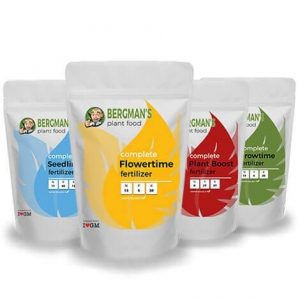
- From seedling to harvest, give your plants everything they need.
- Enough for feeding at least 5 plants.
- Discounted Package Deal
- Works well in soil, hydroponics, and other growing mediums.
- The best way to treat your plants
ILGM Plant Protector
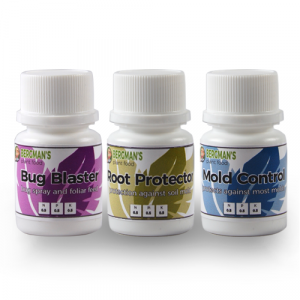
- Protect your cannabis from diseases and harmful pests.
- Contains three 20 ml bottles.
- Enough supplies to protect 20 plants.
- It can be used in soil, hydroponic, and all other growing mediums.














